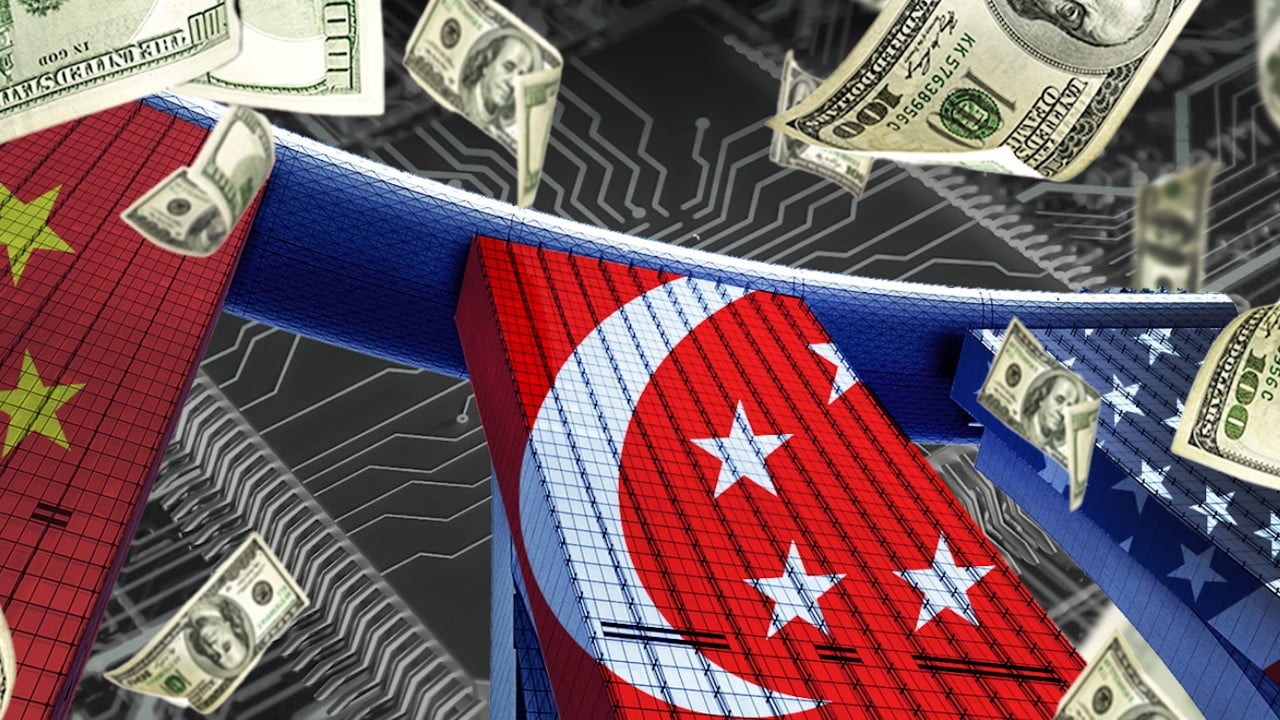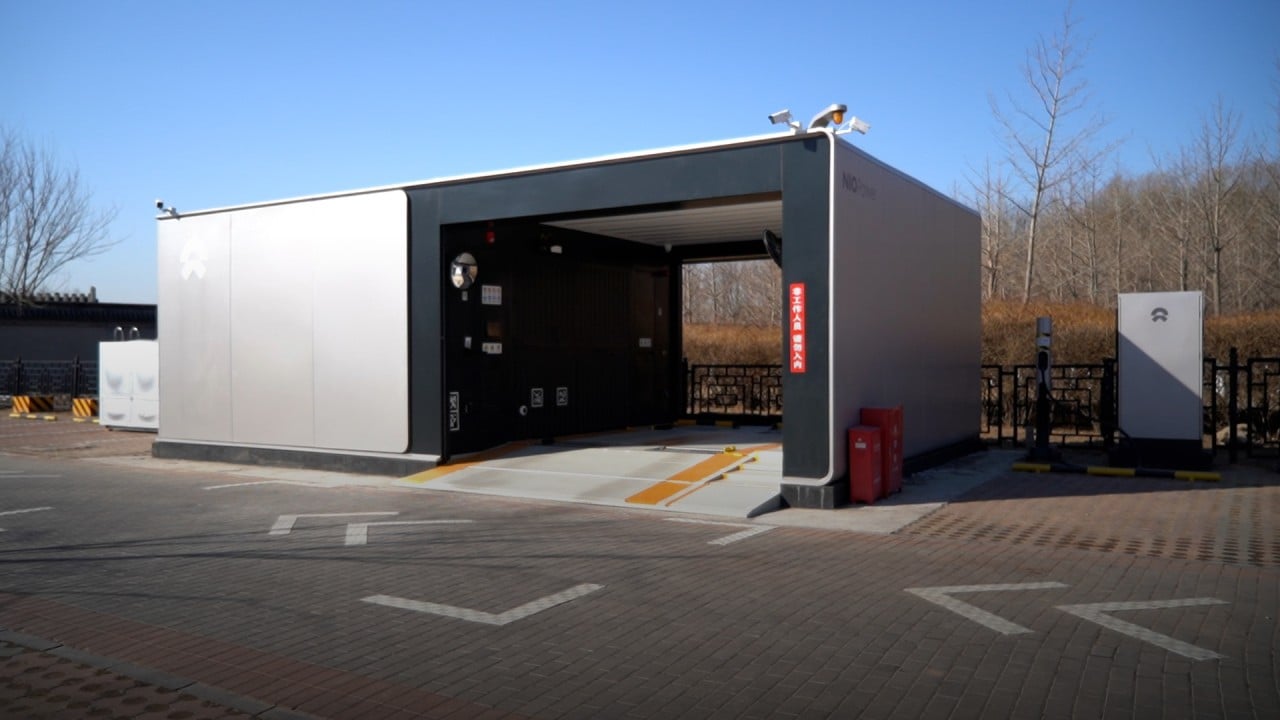As US-China trade tensions persist, supply chain diversification is seriously under discussion. Terms such as “nearshoring”, “friendshoring” and “China plus one” have become part of the foreign policy lexicon.
In particular, the Biden administration’s review of supply chains highlighted vulnerabilities in four critical sectors – pharmaceuticals, critical minerals, electric vehicle batteries and semiconductors – and emphasised diversification methods such as partnerships with allies such as Japan and South Korea.
The US has little to no competitive advantage in the EV battery space, where South Korean manufacturers LG Energy Solution, SK On and Samsung SDI are among the world’s top 10 producers by market share and in keen competition with Chinese behemoths such as Contemporary Amperex Technology (CATL).
While Japan’s Panasonic remains a major player, Korean manufacturers have steadily grown in importance.
Besides, given underlying factors such as the free trade agreement between the United States and South Korea, and cordial ties not just between Seoul and Washington, but also between Seoul and Tokyo, South Korea would seem an ideal friendly shore to diversify supply chains towards, particularly for critical products like batteries and semiconductors.
However, Seoul has not always viewed Washington’s industrial policy favourably. South Korea is among the partner nations raising concerns or taking issue with how the US’ Chips and Science Act and Inflation Reduction Act would impact Korean companies.

31:05
Why Singapore benefits from the US-China tech war
Why Singapore benefits from the US-China tech war
The Biden administration has exempted Taiwanese and South Korean chip makers from export controls aimed at kneecapping mainland China’s semiconductor industry. But Washington’s restrictions on Korean companies’ operations in China were a bitter pill to swallow.
Furthermore, China is not only leading the world in the race to develop advanced technologies – it is ahead of the US in 37 out of 44 critical areas, according to a new study – it is also the biggest market for semiconductors.
Meanwhile, Chinese companies are looking to invest in South Korea’s battery sector, in a bid to bypass the Biden administration’s restrictions and leverage South Korea’s free trade agreement with the US to enjoy tax breaks. Over four months earlier this year, Chinese investors and their Korean partners announced US$4 billion of investments in the Korean battery sector. This could undermine the Biden administration’s efforts to diversify supply chains away from China.
US is still tied to China’s supply chains, at least for now
US is still tied to China’s supply chains, at least for now
Then there is the revelation that Huawei’s new smartphone, the Mate 60 Pro, contains chips by South Korea’s SK Hynix. The Korean company says it is investigating the mystery of how its chips ended up inside the Huawei device, given that it no longer does business with the Chinese tech giant.
While the US government has tried bans, export controls and other measures to limit Chinese access to advanced tools and technologies, Chinese companies appear to have found ways to acquire such hardware and software – or make their own. According to a teardown report by TechInsights, the Mate 60 Pro is powered by a new Kirin 9000s chip, an advanced 7-nanometre processor made by China’s Semiconductor Manufacturing International Corporation (SMIC).
Of the four sectors covered in Washington’s supply chain review, South Korean enterprises play a key role in two: semiconductors and EV batteries. Critical minerals are an important sector for South Korea, too, as they go into batteries for EVs.

02:05
Chinese smart-battery swap stations can change EV batteries automatically
Chinese smart-battery swap stations can change EV batteries automatically
Since both Chinese demand and Chinese inputs for these three goods categories are very high, however, decoupling from China in these sectors will be quite challenging.
With Chinese companies such as Huawei and carmaker BYD expanding into Southeast Asia and other emerging markets, demand for inputs will surely increase. While Chinese companies have a history of choosing home-grown inputs, they could pick Korean partners when it makes sense to.
Yet, the current South Korean President, Yoon Suk-yeol, in a departure from his predecessor, Moon Jae-in, takes a more hawkish position on China, and has been readier to engage with nations across the Indo-Pacific. Tellingly, after Yoon was elected last year, all four leaders of the Quad security grouping were among the first five state leaders he spoke to.
Chinese strategy vs US tactics. Guess who’s winning the tech war?
Chinese strategy vs US tactics. Guess who’s winning the tech war?
Furthermore, the Yoon administration has since unveiled an Indo-Pacific strategy that includes not just the US and Australia as partners, but also nations across the Indo-Pacific from India to Vietnam.
With regard to strategic sectors, Seoul is offering support to the battery industry and has set an ambitious target of winning 40 per cent global market share by 2030.
The South Korean city of Pohang, also known as “the miracle of Yeongil Bay”, for the transformational development of its steel industry in the 1970s, is once again at the heart of a national industrial push. At a time when the US and Japan are also pursuing indigenous industrial development, Pohang has helped South Korea become the world’s second largest battery manufacturer, after China.
Recently, a bipartisan US House committee examining economic competition between the US and China notified several American firms that it is examining their investments in Chinese companies involved in semiconductors. It is not too far-fetched to imagine the long arm of the committee reaching other sectors.
However, the size of the Chinese market continues to appeal to all commercial entities, whether South Korean or American.
The Biden administration has to come up with a geostrategic plan that gives Korean companies an alternative to the Chinese market, or it will have to continue extending China waivers for Korean companies – thereby undermining its own industrial policy and allowing “friendshoring” to devolve into “frenemyshoring”.
Akhil Ramesh is a senior fellow at the Pacific Forum



